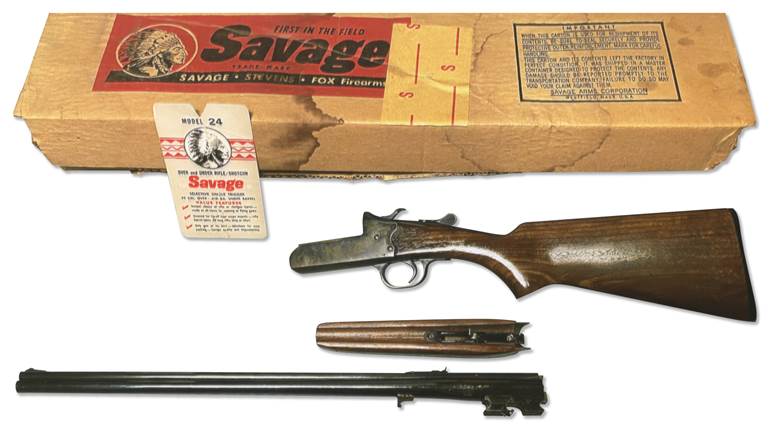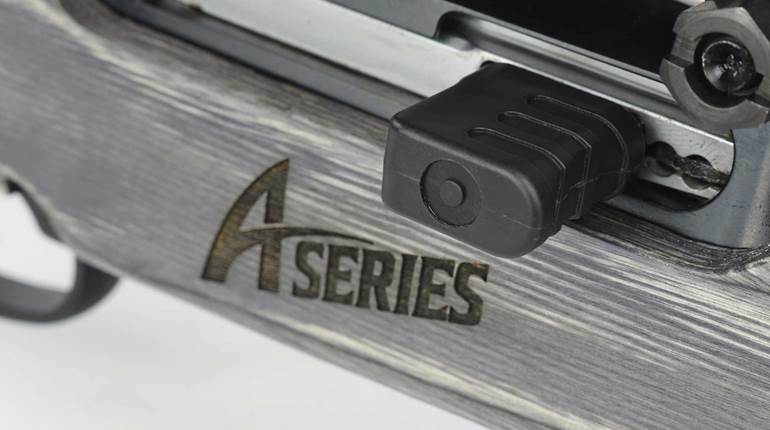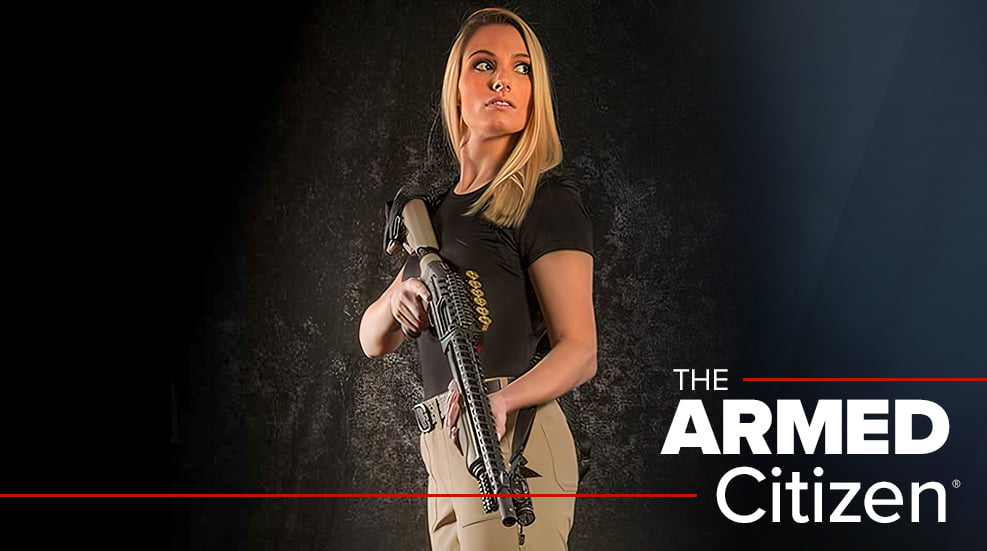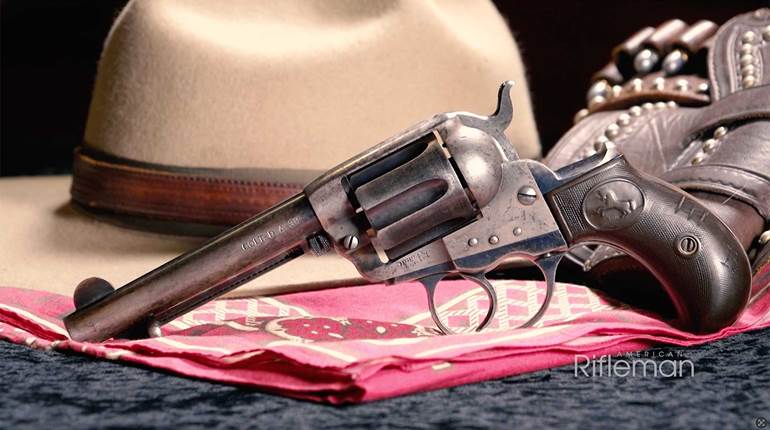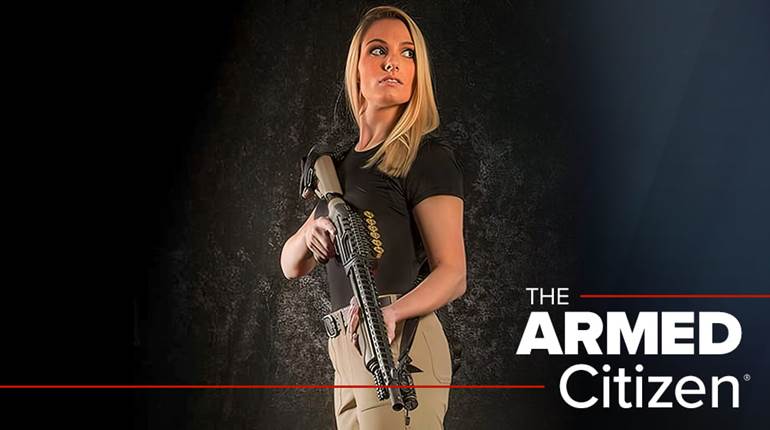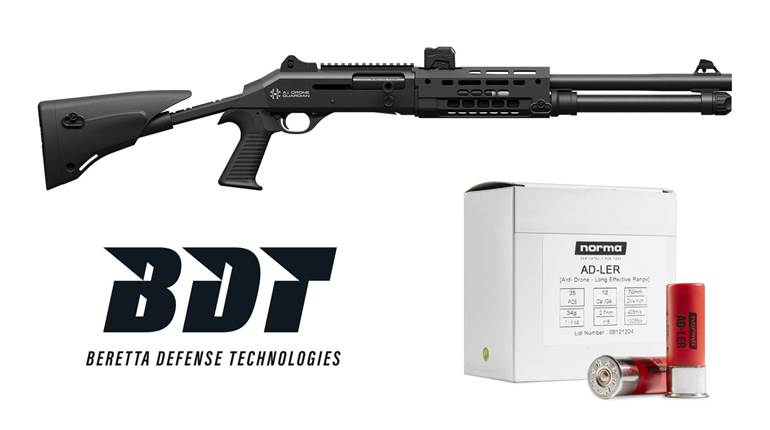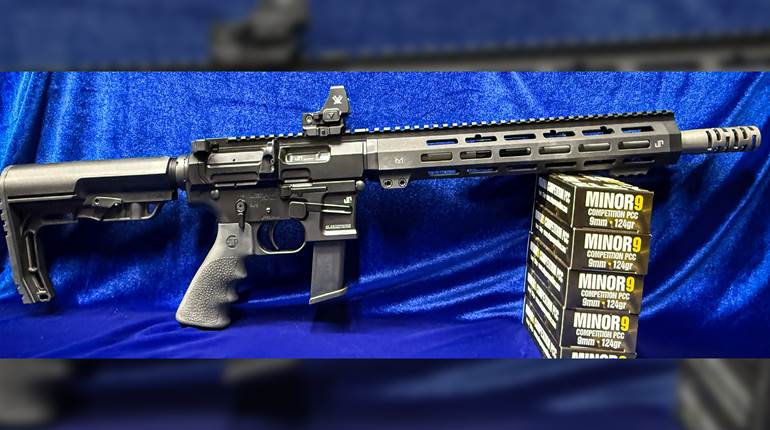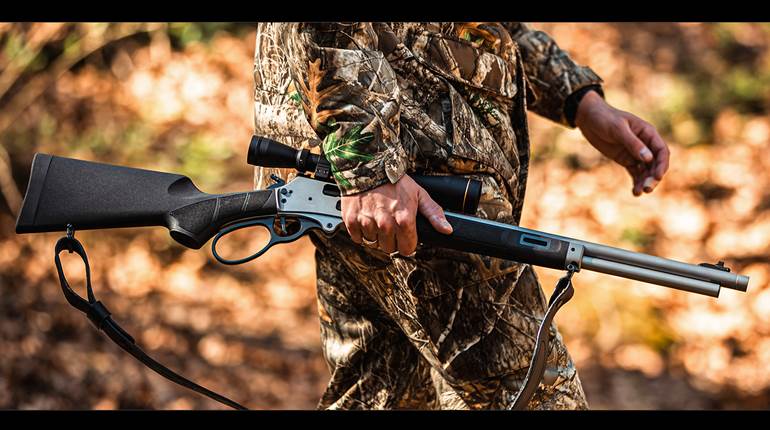
Organized in 1894 in Utica, N.Y., Savage became famous for its hammerless lever-action rifle known as the Model 99. A deal between Chief Lame Deer and Arthur Savage resulted in the trademark Indian head logo that has adorned Savage firearms for almost a century. It’s even thought the image was the inspiration for the squadron symbol used by American pilots flying for France’s Lafayette Escadrille during World War I. Savage contributed greatly to both wars and, while their once flagship rifle has not been manufactured since 1998, Savage continues to innovate with products like the Accutrigger and by offering affordable package rifles that are ready to hunt, right out of the box.
Savage package rifles are rifles equipped with scope bases, scope rings and riflescopes that have been bore-sighted at the factory. Typically, package rifles are very affordable when compared to purchasing all the components separately, Essentially, Savage purchases the additional components in bulk and passes those savings along to the consumer. Savage package rifles make great first rifles for those new to hunting. This is partly because they circumvent the need for mounting a scope and simplify zeroing it. It’s also because these rifles provide trustworthy service without the need for a sizeable investment.
A Savage package rifle can also make a great back-up or camp rifle. If you’ve been to deer camp much at all it seems almost inevitable someone’s rifle or scope will break or maybe they’ll even forget their rifle or even leave their rifle bolt at home. (I did this once.) In many cases a Savage package rifle can be had for less than $500 and be kept at camp or carried along as a back up.
To get an idea of how the average, off-the-shelf, package gun would perform, I obtained three covering a price range from $400 to $612. Surprisingly, I also learned that between the first of August and the last day in November of 2014, Savage is offering a $50 or $75 rebate on these same rifles. You can find the rebate details and a downloadable coupon here. This makes for a very appealing deal, especially considering hunting season is upon us.
You must realize a rifle that has been boresighted is not the same as a rifle that has been sighted in. Bore sighting is nothing more than the gross alignment of the riflescope’s reticle with the bore of the rifle. Sometimes this can produce results on target that are reasonably close to perfect. More often than not it only means your bullets should strike somewhere on the target at 100 yards—you’ll have to fine-tune the zero. I was surprised to discover that bullets from all three rifles, as they were removed from the box, struck the target no more than 4” from my point of aim at 100 yds. This makes zeroing much easier for the novice or experienced shooter.
To determine accuracy potential I went to the bench. Firing five, five shot groups with three different loads would consume 75 rounds of ammunition per rifle. I wanted to test the three rifles with the same loads and this meant I needed 75 rounds—per load—for testing. The three loads chosen were dictated by what I had on hand that would reasonably suffice for typical deer or other big game hunting. They were: Remington’s 168-gr. Barnes TSX Hog Hammer load; Nosler’s Trophy Grade 165-gr. Partition load;and the Black Hills’ Gold 155 gr. A-Max load. Admittedly, the Black Hills load is really more of a target than hunting load.
In all, 45, five-shot groups were fired from the three rifles during a three-day period; I simply cannot shoot 225 perfect shots in one day. The average group size for all 45, five-shot groups, with all three rifles was 2.09”. Considering none of the three rifles liked the 165-gr. Nosler Partition load at all—none of the groups shot with this load measured less than two inches—that’s commendable performance from three rifles with a total suggested retail price of only $1,500!
But hunters, at least most of the hunters I know, do not hunt while sitting at a shooting bench. A hunting rifle needs to be light enough to carry up the mountain, balanced well enough to allow for accurate off hand shooting and it needs to function without a hitch. Those are things you can only speculate about from a bench and short of actually spending a week hunting with a rifle, the best test is to take them out in the field and shoot them like you would while hunting.
That’s what my son and I did on the fourth day of testing. We positioned some steel targets around our property and engaged them with all three rifles from positions you could reasonably expect to shoot from while hunting. Five-inch steel targets out to 200 yards—when engaged from appropriate positions based on the distance to the target—were simple enough to hit. The balance and ergonomics of these rifles, the package optics and the crisp triggers made this possible.
Another often overlooked and under appreciated feature of bolt-action hunting rifles is the magazine. If you only walk out the backdoor and climb into a deer stand, a detachable magazine might not have much appeal. However, for those who spend time in vehicles or on ATVs while hunting, the convenience of a detachable magazine is undeniable. All three of these Savage package rifles utilize the same detachable magazine. and it was just as easy to load as it was to insert or remove from the rifle via the polymer latch at the front. Additional magazines retail for about $50.
Which Savage package rifle did we like the best? My son and I both preferred the Axis II XP which comes with the Weaver Kaspa 3-9X 40 mm riflescope with the Ballistic X reticle. Together, the rifle and scope only weighed 7 lbs., 3 ozs. The Accutrigger felt, believe it or not, as good as a Timney. And, the trim, ergonomic stock design and soft recoil pad made the rifle a joy to shoot. With the current rebate you can own one for about $400.
What is there not to like about the Savage package rifles? Well, a Savage Model 99 they are not. Of course, if you were not born before 1980 you probably don’t even know what a Model 99 is anyway. They do not have finely figured wood stocks and highly polished blued steel. Those things are worth bragging about at the campfire but helped no hunter ever kill a buck. And, if you’re the kind of hunter who likes to act bigheaded about how expensive your rifle was, these are not the guns for you. These are rugged, utilitarian rifles designed to put meat in the freezer and horns on the wall. And, they are ready to do that, right out of the box.
Savage Axis XP .308 Winchester
Savage’s Axis XP is available in eight popular hunting cartridges suitable for hunting everything from varmints to moose. It is a bolt-action rifle with a carbon steel barrel and a polymer stock. The metal and stock both have a matte black finish and the rifle feeds from a detachable box magazine that holds four rounds. With an overall length of just less than 44 inches, the Axis XP has a nominal weight of 6 ½ lbs. The rifle has a single stage trigger and on the test rifle the trigger pull was measured at 4 ¾ lbs.
The Axis XP comes with a mounted and bore sighted, 3-9X 40 mm Bushnell riflescope. Admittedly, this is an entry-level optical sight but during testing—which involved firing about 100 rounds—the scope performed perfectly. The average accuracy for the test rifle in .308 Winchester was 2.12” for 15, five-shot groups with three different loads. The best of those groups measured less than one inch.
Chamberings: .308 Win. (tested), .22-250 Rem. .223 Rem., .243 Win., .25-06 Rem. .270 Win., 7mm-08 Rem., .30-06 Spfld.,
Barrel: 22” carbon steel
Rifling: six-groove, 1:10” RH twist
Stock: Black synthetic
Capacity: Detachable box magazine, four round capacity
Sights: None; shipped with mounted and bore sighted matte blued 3-9X 40 mm Bushnell scope
Trigger: Single-stage (4.75-lb. pull)
Overall Length: 43.875”
Weight: 6 lbs., 8 ozs.(without scope.)
MSRP: $400
Savage Axis II XP .308 Winchester
A step up from the Axis XP is the XP II. This rifle is identical to the XP with two exceptions. It comes with the incredible, user adjustable AccuTrigger and the one on the test rifle broke crisp and clean at three pounds even. Like the XP, the XP II is also a package rifle but comes with a Weaver Kaspa 3-9x40mm riflescope equipped with the Ballistic X reticle. The test rifle in .308 Win. averaged 2.3” for 15, five shot groups and its best five-shot group measured 1.28’. Given the Accutrigger and Weaver scope, the Axis XP II might be the best package rifle deal going from Savage.
Chamberings: .308 Win. (tested), .22-250 Rem. .223 Rem., .243 Win., .25-06 Rem. .270 Win., 7 mm-08 Rem., .30-’06 Sprg.,
Barrel: 22”, carbon steel
Rifling: six-groove, 1:10” RH twist
Stock: Black synthetic
Capacity: Detachable box magazine, four round capacity
Sights: None; shipped with mounted and bore sighted Weaver Kaspa 3-9X 40 mm scope.
Trigger: single-stage Accutrigger; 3 lbs. pull
Overall Length: 43.875”
Weight: 6 lbs., 8 ozs. (without scope.)
MSRP: $489
Savage Model 11/111 Trophy
Built on the older and time-tested Model 11/111 Savage bolt action, the Model 11/111 Trophy is yet another step up from the Axis. It comes standard in right or left hand with a carbon steel barrel and a detachable magazine with a capacity of either three or four, depending on the cartridge. And, there are lots of cartridges to choose from, 17 to be exact. Like magazine capacity, barrel length varies from 22” to 24” depending on the chambering. The stock and metal are both finished in matte black and sling swivel studs and a soft rubber butt pad are standard.
Also standard on the Trophy is the Nikon 3-9X 40 mm riflescope with the BDC reticle. The BDC reticle allows for easy trajectory compensation at long range and when combined with Nikon’s Spot On ballistic software, trajectory compensation is a breeze. But to hit at any range a rifle needs to shoot with precision and the Savage Model 11 action is known for just that. The test rifle in .308 Win. averaged 1.86” for 15, five-shot groups with three different loads. Street prices should be slightly less than $600 and with the current $ 5 rebate from Savage you should be able to drive away with this package deal for about 500 bucks.
Chamberings: .308 Win. (tested), .204 Ruger, .22-250 Rem. .223 Rem., .243 Win., .25-06 Rem., .260 Rem., 6.5 Creedmoor, 6.5 x 284 Norma, .270 Win., 7 mm-08 Rem., 7 mm Rem. Mag., .30-06 Sprg., .300 Win. Mag., .338 Win. Mag.,
Barrel: 22” (as tested*), carbon steel
Rifling: six-groove, 1:10” RH twist
Stock: Black synthetic
Capacity: Detachable box magazine, 4 + 1*
Sights: None. Shipped with mounted and bore sighted Nikon 3-9X 40 mm scope with BDC Reticle.
Trigger: Accutrigger, 4-lb., 12 oz. pull
Length: 41.5” (as tested*)
Weight: 7 lbs., 4 ozs. (without scope.)
MSRP: $612.* Magnum versions have 24 inch barrels, weigh slightly more and have one round less capacity.



















